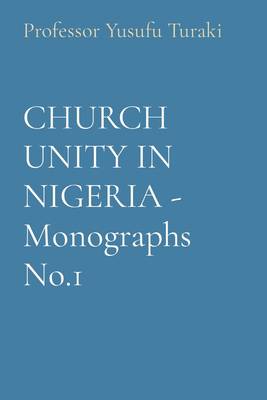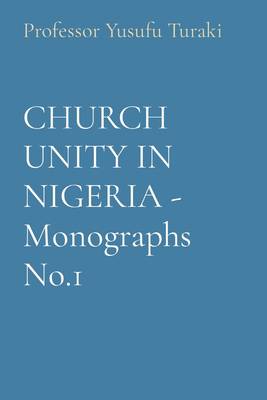
- Retrait gratuit dans votre magasin Club
- 7.000.000 titres dans notre catalogue
- Payer en toute sécurité
- Toujours un magasin près de chez vous
- Retrait gratuit dans votre magasin Club
- 7.000.000 titres dans notre catalogue
- Payer en toute sécurité
- Toujours un magasin près de chez vous
Description
The primary objective of this Monograph No.1 is to examine and evaluate the nature, scope, characteristics and issues of the unity of the Church in Nigeria from the times of the Pioneering missionaries to date. The Nigerian Church is characterized by great regional and international growth and spread, liveliness and enthusiasm, and a great show of religiosity and a manifest diversity of churches and denominations that carry out many activities and ministries that sometimes look divisive and competitive. To the extent that on the surface, Nigerians are deeply religious in all facets of life and they do demonstrate that in their vibrant Christianity with very strong ecumenics, associations and fellowships. However, negatively, the same large and vibrant Nigerian Church is also plagued by great divisions and splinter groupings, lack of unity, stiff competition and rivalry, and is also overwhelmingly dominated by ethnic, tribal, primordial and regional values, interests and sentiments. No single church, denomination, or organization can address effectively and adequately the problems and challenges of the Nigerian social environment alone.The task of addressing the problems, challenges and prospects of unity of the Church in Nigeria is immense and difficult. The best we can do is to introduce the subject matter for wider and general discussions and deliberations by all Christians. This is how we proposed that this subject matter be addressed. The first section presents a summary of the major issues of the unity of the Church that need to be discussed and addressed. The second section gives a summary guideline on how these issues could be defined and addressed. The third section presents and establishes a biblical and theological foundations of the unity of the Church based upon select relevant Bible Texts. This seeks to give a biblical and theological understanding and grounding of the major issues and challenges of unity of the Church. The fourth section presents a brief historical and social background of the context of the Nigerian Church as an answer to many questions and issues of diversity, competition, rivalry and schisms. It also outlines and highlights the nature, scope and characteristics of the Nigerian Church. The fifth section presents a brief history of the established Missionary Christianity and Church in Nigeria and how Christian Missions attempted to deal with the questions and issues of unity of the Church in their missionary work in Nigeria.
Spécifications
Parties prenantes
- Auteur(s) :
- Editeur:
Contenu
- Nombre de pages :
- 68
- Langue:
- Anglais
Caractéristiques
- EAN:
- 9781088175361
- Date de parution :
- 16-06-23
- Format:
- Livre broché
- Format numérique:
- Trade paperback (VS)
- Dimensions :
- 152 mm x 229 mm
- Poids :
- 104 g







